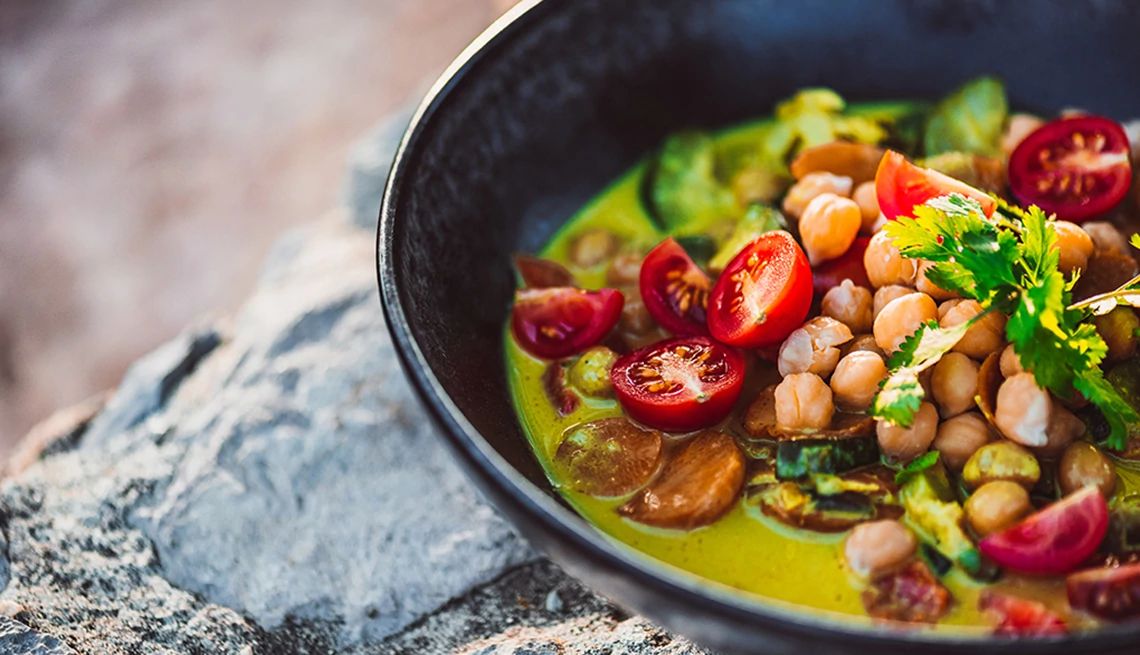Challenges


Have you cut back on how much meat you eat? Are you considering a more plant-based diet?
There are many reasons for rethinking a meat-centric diet, including environmental and animal welfare concerns, and better health. Eating a plant-based diet was associated with a lower risk of heart disease, cancer and mortality in a study published in JAMA Network Open in 2023. Studies have shown that the Mediterranean diet, which emphasizes plant foods and fish, with only a small amount of meat, can help lower blood sugar, cholesterol and blood pressure while offering protection against cognitive impairment later in life. That’s why AARP’s Global Council on Brain Health, in its report “Brain Food,” recommends plant-based diets like the Mediterranean diet, noting that “a healthy diet is crucial to optimal brain health.”
Here are five things to keep in mind when deciding whether a plant-based diet is right for you.
1. A plant-based diet can support your memory.
Older adults who ate a plant-based diet performed better on tests of long-term memory and executive function in a study of 3,039 adults with a mean age of 70 published in Nutritional Neuroscience in 2022. The researchers speculated that, because they tend to be high in fiber and unsaturated fats, plant-based diets can help fight inflammation in the brain, which, in turn, supports cognitive function.
2. Getting enough protein may be challenging.
A growing number of researchers think that the current recommended dietary allowance (RDA) for protein — 0.8 grams of protein per kilogram (2.2 pounds) of body weight — is inadequate for older adults. They argue that getting closer to 1 to 1.2 grams of protein per kilogram of body weight daily is necessary to prevent age-related muscle loss. Yet, in a study published in The Journal of Nutrition, Health and Aging in 2024 that analyzed data from 607 adults age 65 and older, switching from a diet heavy in animal protein to a plant-based diet resulted in a 5 percent decline in protein intake. People eating vegan (meaning no animal products, including meat, fish, dairy or eggs) had the most difficulty getting enough protein.
If you choose to eat less meat — and if you also decide to cut out other animal products — you’ll need to make up for it by eating plenty of vegetarian sources of protein, such as lentils, beans, nuts and tofu.














More From Staying Sharp
How to Cook Salmon
An easy oven method to get the fish meal right every time at homeAdd Walnuts to Your Next Meal
They’re packed with healthy omega-3s
Make Your Protein Count
Stay nourished and strong with these healthy hacks